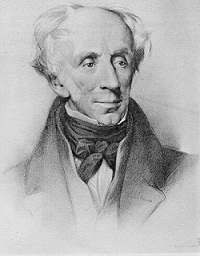Trace the gradual development of Wordsworth’s attitude to nature as recorded in ‘Tintern Abbey’.
Or
Discuss the three stages of Wordsworth’s growth as a poet of nature as recorded in Tintern Abbey’.

Answer: ‘Tintern Abbey’ of William Wordsworth is the first clear expression emotional change in poetry. It recognizes the power of Nature to quicken the imagination of a creative mind. It helps us get an analysis of the three different stages in the gradual development of the poet’s altitude to Nature (a) The period of the blood- the animal pleasures of his boyhood (b) The period of the senses— the enjoyment and apprehension of the sensuous of the sensuous beauty of Nature in his youth and (c) the period of the imagination and the soul- his capacity to look on Nature with a philosophical eye in his maturity.
Wordsworth’s boyhood and the formative years of his life were spent in the midst of Nature’s beautiful surroundings. This was the period of his love of Nature. It was a healthy boy’s love of the open air, sunshine and freedom of the fields. He loved Nature with a passion which was all physical without having any trace of intellectual or philosophical association. He haunted the hills and the vales for sports and bounded over the mountains like a roe.
In youth which was a period of the senses, Wordsworth was thrilled and & enchanted by the physical beauty of Nature. His love of nature in this stage was purely sensuous and emotional. This was characterized by “dizzy raptures” and “aching joys” which replaced his earlier “coarser pleasures” of his boyhood. The beautiful sights and sounds of Nature, The colors and the forms of the objects of Nature roused his sweet sensations, and made him very passionate.
In the mature years, the poet was blessed with an imaginative faculty and an uplift of his soul. In youth he did not find any hidden meaning of nature nor had he any philosophy of Nature. Now he looks at Nature not with a painter’s eye, but as a translator who can explain its hidden meaning. Thus the poet has developed a philosophic mind which helps him understand the miseries and sufferings of mankind by seeing the natural phenomena. This experience of the miseries of the world makes him nobler and sympathetic towards the suffering humanity. Now he experiences a kind of spiritual uplift, a sublime state of meditation in which he feels within himself a presence of the Divine spirit that animates mystic thoughts in him. The Divine spirit is the Soul of the Universe or the Spirit of Nature that puts the mind in motion and makes the body move. According to Wordsworth, this Divine Spirit is the source and the guiding force of all creations.
To sum up, throughout his whole life Wordsworth remained a true worshipper of Nature, the true priest and a revealer of her harmonies to humanity. He considered Nature as the external garb of God or the manifestation of the Divine Spirit. According to Wordsworth a man can establish a communion with God through his worship of Nature.



